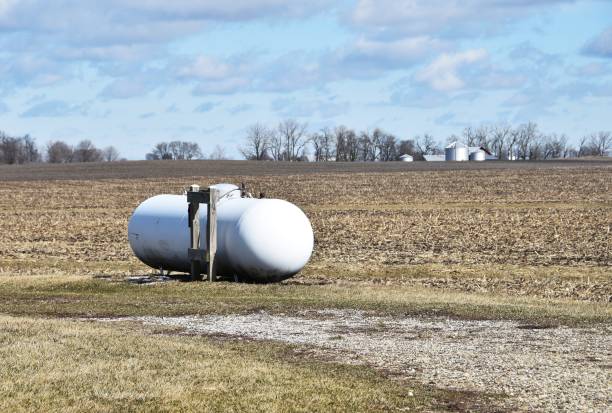Targeting Propane Usage in Key Industries

Propane, with its diverse range of applications, holds immense potential in sectors where efficiency, affordability, and environmental responsibility are paramount. Understanding which industries are the primary consumers of this versatile fuel can be the key to unlocking growth and profitability.
1. Agriculture: Cultivating Opportunities
The agricultural sector has long been a steadfast consumer of propane, finding a multitude of uses for this clean-burning fuel. For propane entrepreneurs, this market segment offers fertile ground for growth. Here are some ways propane plays a vital role in agriculture:
Heating: Propane serves as a dependable heat source for greenhouses and livestock enclosures, ensuring optimal conditions for plant growth and animal welfare.
Powering Equipment: Farmers turn to propane to fuel irrigation pumps, tractors, and various farm equipment due to its affordability and low maintenance costs.
Weed and Pest Control: Propane flame weeding provides an organic alternative to herbicides, and its heat sources create an inhospitable environment for plant pests, effectively deterring them.
Crop Drying: The crown jewel of propane usage in agriculture lies in crop drying. Corn and other grains, in particular, rely heavily on propane for this critical process, with approximately 80% of drying machinery utilizing propane. Farmers favor propane for its crop-friendly characteristics and ease of storage compared to traditional fuels.
2. Manufacturing and Industry: Fueling Progress
Manufacturing and petrochemical industries represent another major frontier for propane usage. The fuel’s adaptability and efficiency make it indispensable for various applications, including:
On-Demand Heat: Propane excels in applications like soldering and metal melting, providing reliable and readily available heat.
Petrochemicals: Propane plays a vital role in producing essential items such as plastic bags, rubber products, nylon, and more.
Heating and Backup Power: Many manufacturing facilities rely on propane for building heat and generating backup power, ensuring uninterrupted operations.
Cooling: Propane is increasingly employed as an environmentally friendly alternative for refrigeration and air conditioning, aligning with sustainability goals.
3. Transportation and Logistics: A Roadmap to Success
Propane’s eco-friendly and cost-effective attributes make it an attractive choice for the transportation and logistics sector, which accounts for a substantial portion of energy consumption in the United States. Here’s how propane is making inroads in this industry:
Clean-Burning Forklifts: Propane-powered forklifts are a common sight in warehouses, thanks to their clean-burning nature and fuel efficiency.
Fleet Vehicles: Propane presents an eco-conscious and economical alternative for vehicles and entire fleets, aligning with sustainability objectives.
Focusing on the transportation and logistics segment offers a unique opportunity to provide innovative solutions that meet the evolving demands of this industry while advocating sustainability. By offering propane as a clean and cost-effective fuel source for vehicles and logistics operations, your business not only gains a competitive edge but also contributes to a more sustainable future, aligning with the growing environmental consciousness of businesses and consumers alike.
In Summary
Understanding the diverse industries that rely on propane is essential for everyone looking to thrive in an ever-evolving market. By tailoring your products and services to meet the specific needs of the agriculture, manufacturing, and transportation sectors, you can position your business for sustained growth and success. Propane’s versatility, efficiency, and environmental benefits make it an attractive choice for businesses across these industries, paving the way for mutually beneficial partnerships and expanded market reach.














